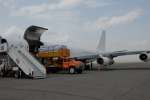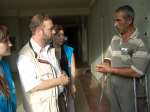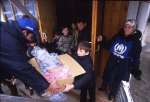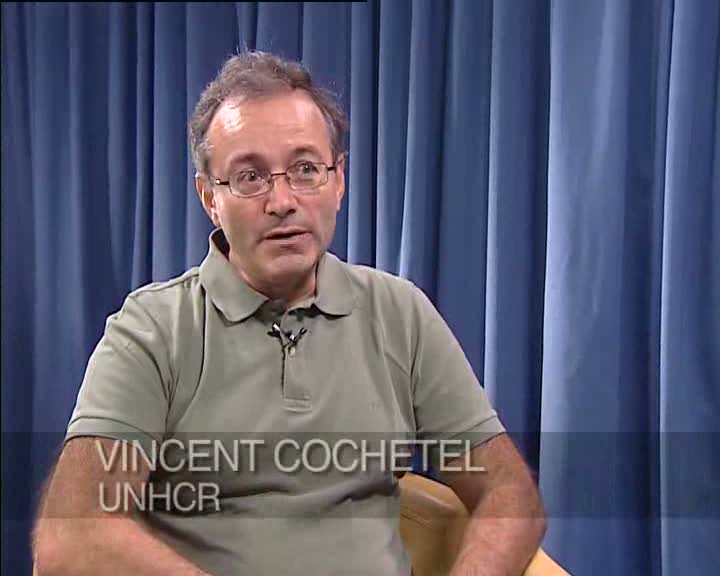Vincent Cochetel arrives in Geneva
Press Releases, 12 December 1998
Vincent Cochetel was welcomed by his family, High Commissioner for Refugees Sadako Ogata, as well as the French Ambassador to the UN in Geneva, Mr. Philippe Petit, at Geneva airport late Saturday after he was freed from captivity in the Northern Caucasus.
The UNHCR's head of office in Vladikavkaz was freed in a Russian security operation during the night of 11-12 December. Details of the circumstances of his liberation were not immediately available.
Vincent Cochetel arrived in Geneva on board a French government aircraft which was sent to Moscow to receive him. Cochetel was exhausted but appeared in generally good health. He was elated that his ordeal was over and to be reunited with his family, including his two daughters, Sarah (7) and Salomé (6).
"No words can express how happy I am and how grateful I am to everyone who helped us," said his wife, Florence Cochetel. "Vincent and I are looking forward to some quiet time together now. The children and I have been waiting so long for him. But my thoughts are with the families of other hostages who haven't been as fortunate."
Mrs. Cochetel travelled to Moscow two weeks ago in an effort to speed her husband's release.
High Commissioner Sadako Ogata said she was grateful to the authorities of the Russian Federation and North Ossetia, as well as to the French government, who have worked throughout the year for Vincent's release.
Cochetel, 37, was abducted outside his residence in North Ossetia's capital Vladikavkaz on 29 January 1998. His nightmare lasted 317 days.


































